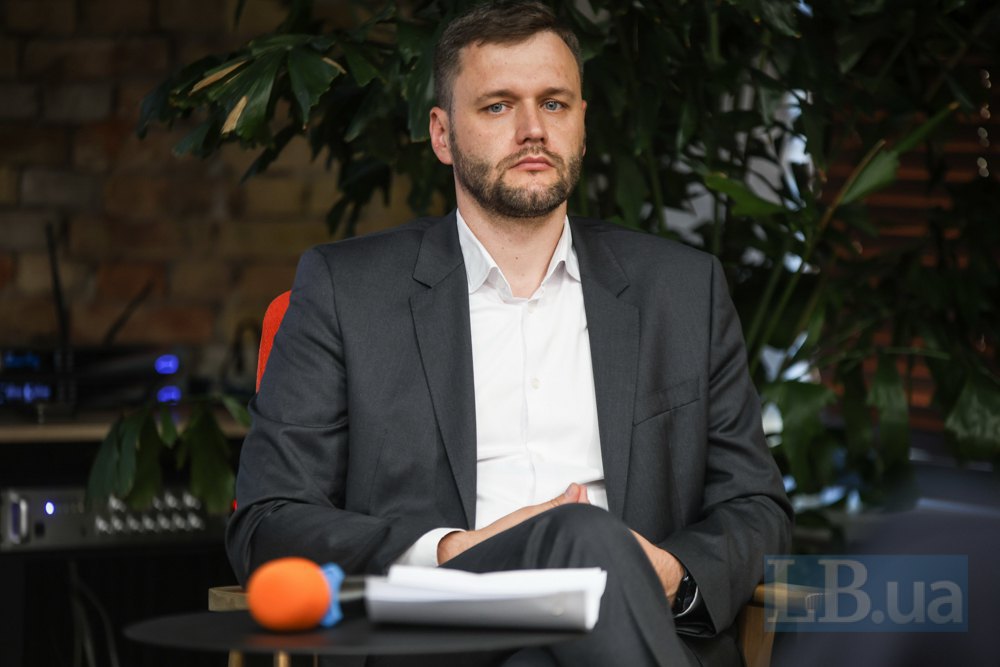
Methods are punitive. Involvement of corruption whistleblowers
The institution of whistleblowers is one of the means of fighting corruption and is just beginning to work fully in Ukraine. According to the NACP head, it still needs some legislative refinement due to gaps (for example, differences in the definition of "whistleblowers" in the legislation); the protection of whistleblowers should be strengthened and problems with remuneration should be eliminated, etc. However, the foundation of this important practice for Ukraine has been laid, said Pavlushchyk.
"There are two cases of whistleblowers thanks to the NABU. There are decisions of the High Anti-Corruption Court that have entered into force. One case with a reward of UAH 13.3 million, the other - UAH 1.68 or 1.69 million. They [whistleblowers] are waiting for their payments. The legislation stipulates a method of payment that is currently unworkable. At the same time, the NACP is actively working, and we hope for the support of the Cabinet of Ministers so that people can be paid their well-deserved rewards in the near future," said the head of the agency.
He also noted the dramatic changes in the public attitude towards corruption whistleblowers.
"For a country with a post-Soviet background, we have done a lot of work... I can say that the understanding and perception of whistleblowers in Ukraine has changed radically. They are no longer "snitches" or some negative characters who give information about others. These are people who draw attention to violations, to the illegal activities of others and focus on certain gaps, who can identify systemic corruption or systemic problems. So this is definitely a positive case. Of course, I will advertise it and say that whistleblowers are good," assured Pavlushchyk.

Preventive methods
The NAPC's punitive functions, i.e. financial control, overlap with preventive ones to the maximum extent possible, the head of the anti-corruption agency believes.
"If we talk about declarations, objectively, the percentage of those that are fully verified is very low compared to the number of total declarations submitted. As a safeguard against unlawful actions, we have introduced a risk-based approach to selecting declarations for full verification. We have a software product, logical and arithmetic control, which allows us to select the most risky declarations for full verification without checking the same people year after year, who are often also honest. And we emphasise this in our actions, because there is no need to check the same MPs or ministers every year if there are no grounds for doing so. The declarations that receive the highest risk rating based on an objective mathematical approach are selected for full verification," said Pavlushchyk.
He reminded that the NACP identifies and minimises corruption risks in various areas, in the activities of individual enterprises and provides recommendations to the relevant authorities.
"This includes anti-corruption expertise of legislative acts that prevent dishonest civil servants from implementing their criminal intent. And the maximum emphasis in the state anti-corruption programme, which is a mega-large comprehensive solution to prevent corruption in the long term (it is currently dated 23-25 years) on one of the main methods - transparency. Ukraine, despite the war, is a mega-transparent country. With Diia, Prozorro, the Electronic Register of Declarations, it is the most transparent in the world in terms of administrative services," said Pavlushchyk.
In addition, the NACP head noted, the agency implements educational activities in schools (grades 5-11) and universities. There is a state anti-corruption communication strategy approved by the Cabinet of Ministers in December 2023. However, Pavlushchyk added, there is less demand from the public for prevention than for the results of the fight against corruption.

Seven years of waiting for a verdict. Legislative changes
According to a study based on court decisions on criminal offences in 2022, the average duration of a corruption case - from registration of criminal proceedings to the final verdict - is seven years, said Pavlushchyk.
"I'm not talking about the large number of criminal proceedings related to complex economic crimes referred by the NABU that have no final decision," he said.
That is why, according to the NACP head, the agency has developed a draft law that would limit the timeframe for prosecution and prevent abuse of procedural rights to delay the consideration of cases.
"This resolves the issue of normal access to justice and makes it impossible for the parties - the prosecution, the defence, the court - to abuse the postponement of trials for 10-11 months. This will at least give people who have been in pre-trial detention centres for years, or even ten years, the opportunity to receive their justice. They would have received their seven to eight years long ago and been released," Pavlushchyk said. This draft law has already been considered by a government committee, the NACP representative added.








